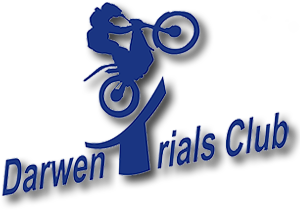Starting Trials
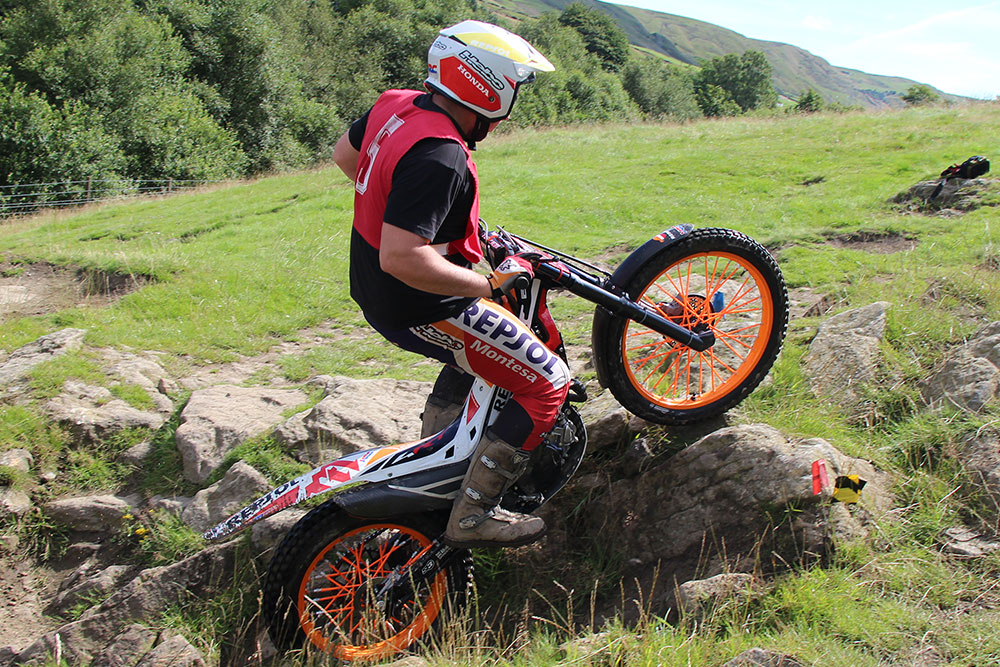
The basic aim of Trials Riding is to get yourself and a motorbike from one place to another without falling off, stopping or putting your feet down. If you can do that, then you've recorded a clean. Touch the ground with a foot, you'll lose one point, two dabs and it's two points lost, any more than two loses you three points. And if you fail to reach the end of the section, that's five points gone. Of course, it's not quite as simple as that as course plotters make it difficult by including mud, rocks, streams, ups, downs and tight turns just to make it more of a challenge!
What do I need?
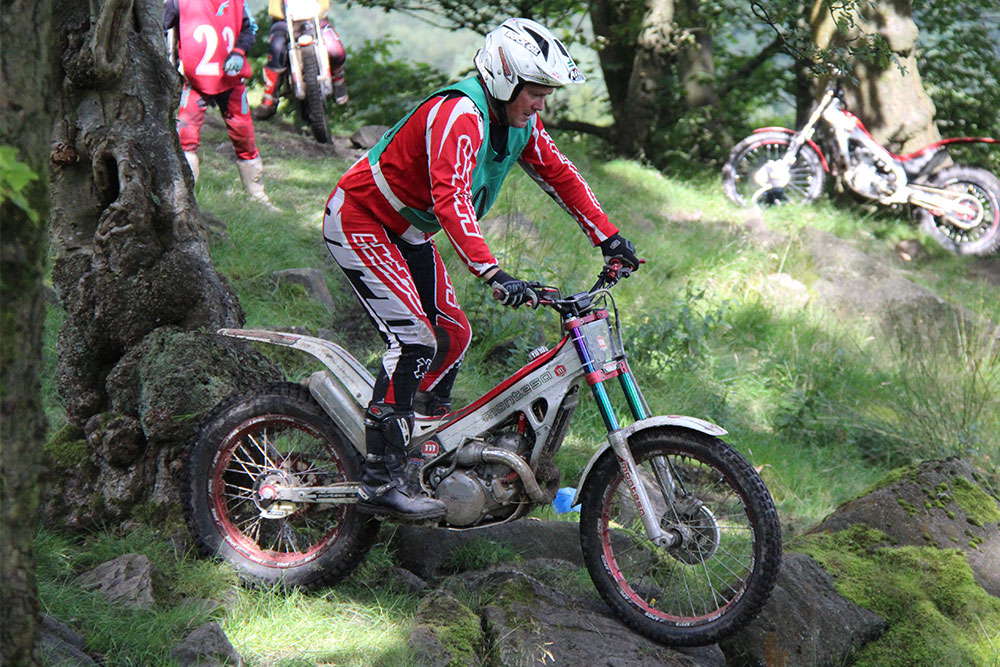
Apart from a bike, you'll need some old clothes and a helmet, boots and gloves to protect yourself. Buy the best you can afford - they'll look after you and last a long time if you look after them well. If you're lucky, you might find some 'slightly used' ones especially if you're a junior.
You'll also need a way of getting your bike to a competition and here there's a choice of sharing with a friend, a trailer, van, pickup or bike rack to fit on the back of your car.
Also, if you're intending to enter competitions, you will need to sign up with the ACU so that you are officially registered for trials events.
Where can I find out more?
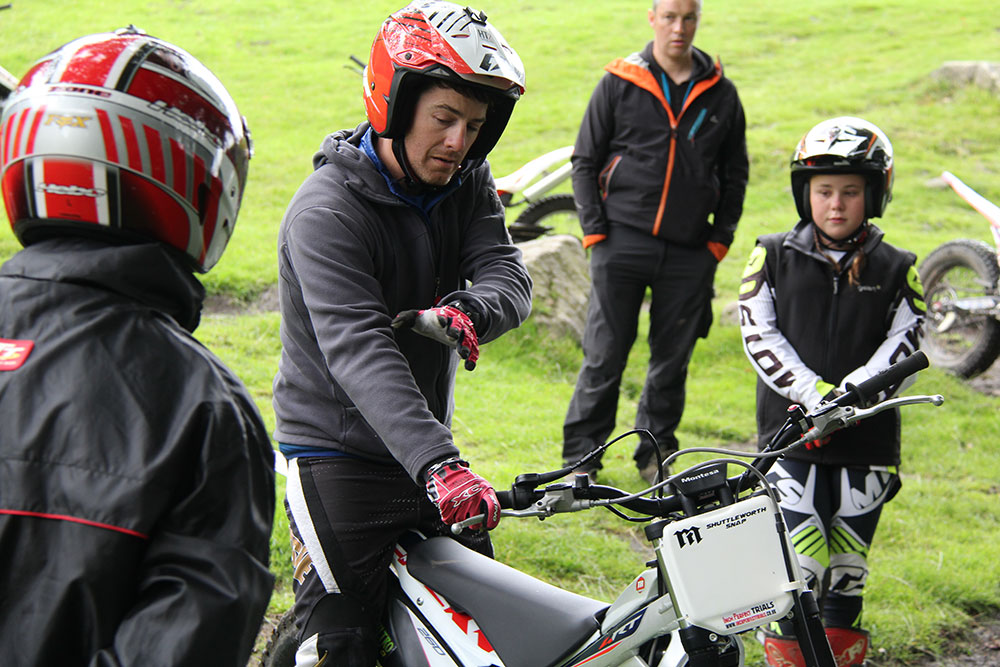
Links to websites giving more information about the sport of motorcycle trials
- Bikesport GB - The Auto Cycle Union is the body which controls all motorcycle sport in the UK and their website contains lots of useful information including details of all events.
- Trials Central - is a very useful website which contains news items, results and reports from competitions and a calendar of forthcoming events. It also includes an online forum where you can get (and give) advice on all aspects of motorbike trials.
Where can I practise?
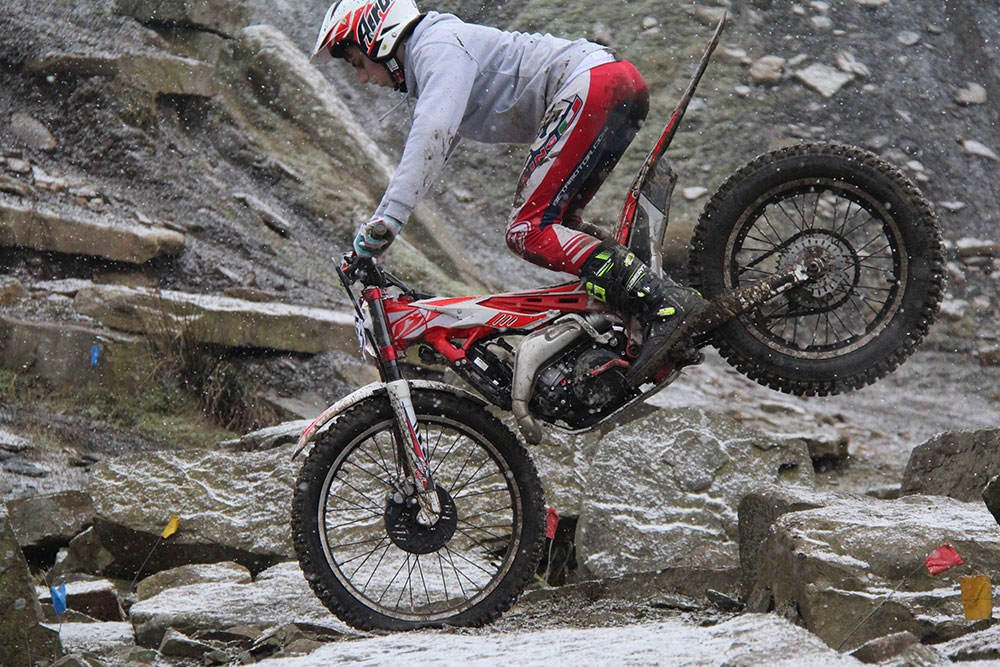
-
Cowm Leisure - a very large quarry near Whitworth, Rochdale. See their website for more information.
-
Feniscowles - a disused moto-cross track southwest of Blackburn with a stream and woodland. Just off Livesey Branch Road - follow Stockclough Lane approximately one mile. Contact: Pete - 01254 830554
-
Parkwood Off-Road - a very large area of woodland at Tong, near Bradford. Is used for World Championship Trials. More information on their website
-
Cliviger - hillside with streams and woodland near Holme Chapel, on the A646
You must make sure that you have the landowner's permission to be on their land - failure to have this may result in confiscation of your bike!
Young Riders
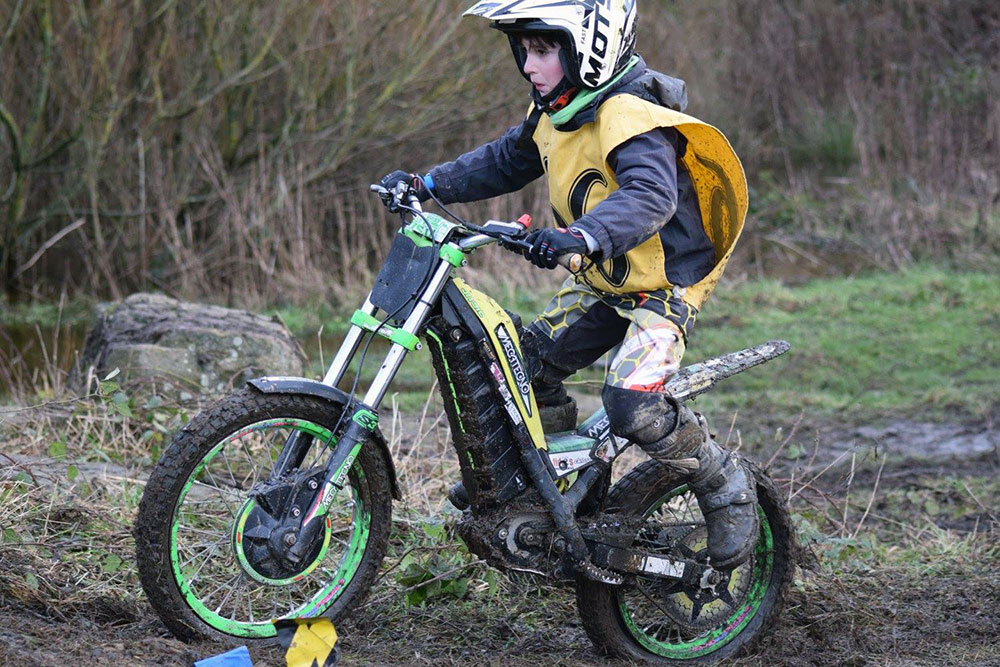
Youth riders are especially welcome at trials and will be given lots of encouragement. Trials riding is the perfect introduction to any kind of motor sport and will give valuable experience of balance, throttle-control and braking on a wide range of surfaces with a low risk of serious injury. The riders are also a very sociable crowd and will help regularly each other and less experienced riders with advice and support.
Youth riders can compete from the age of four on electric bikes and six on combustion engine (petrol) machines. There are a few additional machine and other regulations for them which can be found in the Trials section of the ACU handbook. This can be downloaded here and is essential reading. Full details of machine and age restrictions can be found on page 197.
Your First Competition
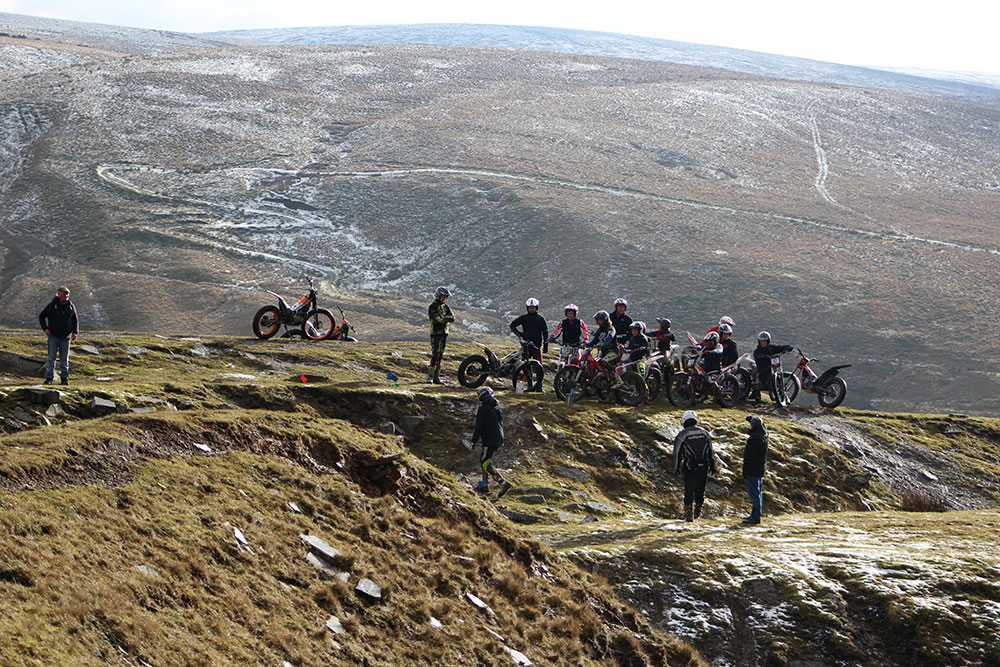
The Day Before
It's a good idea to have a checklist of all of the items you will need and go through this list the day before the event. If there's anything missing, you will have a chance of getting them. What you will need:
- Bike / fuel /
- Helmet / boots / gloves / other clothing
- ACU licence / club membership card / money / pen
- Food / drink
- Change of clothing / towel
You might be able to download an entry form from a club or other website and if you complete this before leaving home, you will have already completed one job for the day. The entry form will also give other information such as the event location, postcode or other details of how to get to the event and any extra notices about the event. Read and follow these instructions.
On the morning
If it's a morning competition, you will need to get a decent breakfast, fuel and load up your bike, get into your riding gear and get to the event. It's always best to arrive early, park and find the 'Signing-on' car. Usually the competition will allow entry on the day and this is where you will register. If you haven't already completed an entry form, pick one up and complete it. If you have time, have a walk around the first few sections and take a look at them. This will help you decide which course you are entering. Once you have completed your entry form, go back to the signing-on car and join the queue. If you have any questions, this is a good time to ask as most other riders will be regulars and able to give helpful advice. Let them know if it's your first trial.
Once you have handed in your entry form, you will be given a bib or number for your bike and now you should be ready to go. Usually, the numbers or bibs are colour-coded to indicate which course you are riding. There will be a riders briefing - usually signalled by a car horn - around the start time and you should pay attention to this as any late changes or notices are given out. Once this is over, you'll be able to start your engine and begin at your first section.
On the course
You are normally expected to visit each section in order and, unless the briefing says otherwise, you should start at number 1. At the start of a trial there will be a queue with many riders waiting for their turn. The first lap is usually the slowest but riders will space out and speed up as the trial progresses. On your first lap, take your time and take a good look at each section. Look for where other riders on your course are going. Where they are having difficulties. The riding lines they are using. When you're ready join the queue and, when it's your turn, take a deep breath and off you go. If you think a section is impossible or too dangerous for you, wait until the observer has a moment and ask for a 'Five'.
Once you've attempted your first section, follow any course markers - often orange flags - and move on to the next to go through the same routine again. Most trials have several laps of a short circuit, so you will have several attempts at each section. You should complete all of the sections in order once on each lap - but, if you are losing time or battery power on an electric bike, an observer may let you 'double-up' and have more than one attempt on a single lap.
On your last lap, it's a good idea to check with each observer that you have completed the required number of attempts and, of course, to say 'Thank you'. Then it's back to the car park and tidy up.
After the trial
Once you're back at the car park, it's time to load up your bike, have a change of clothes and get yourself back home. When you get home, unload the bike and wash it checking for any damage and do any servicing that needs doing. Keep an eye out for results which will usually appear on a club's website within a couple of days. And, that's about it! Until next time.
Always Remember
- We can only keep our sport going by maintaining good relations with landowners and other country users. Follow all instructions related to noise, speed, gates, walkers, other users.
- Observers are the most valuable people in our sport. They are happy to stand out for hours in all weathers so that you can enjoy yourselves. They may even have given up their own ride in a trial so that you can enjoy yours. Be polite with your enquiries and remember to say, 'Thank You'
- Our sport relies on a very small number of helpers and officials giving their time and energy in lots of different ways. Land use needs someone to negotiate and get the owner's permission. Permits need applying for. Courses need planning, marking out. Results need to be produced.
Please be polite, patient, clean and tidy. Don't be the person who loses a good piece of land through leaving gates open, litter or upsetting livestock (or other country users)
